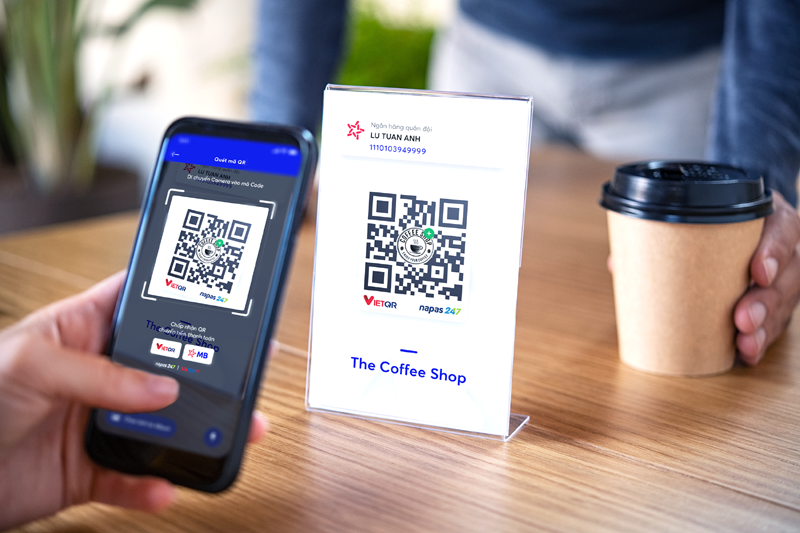Vietnamese people set to have QR code by 2025
Vietnam aims to create a breakthrough in its ranking and join the top 50 countries in terms of open data and e-participation.
Every Vietnamese is set to have their own digital identification stored in a QR code and a smartphone by 2025.
| The NAPAS 247 service using VietQR. File photo |
The move was revealed in a national strategy to establish e-government and eventually digital government in Vietnam in the 2021-2025 period, with a vision to 2030.
“Vietnam aims to create a breakthrough in its ranking and join the top 50 countries in terms of open data and e-participation,” noted the government in the plan.
In this context, the people and enterprises could use digital services in a convenient and simple way without having to submit any paper documents.
“Every household would have a digital address and have access to broadband internet,” it added.
Meanwhile, the government expects each people to have a digital health record, while hospitals and health facilities could provide remote consultation and treatment.
With health bills being paid via non-cash payment methods, prices of medicines, health equipment, and treatment process would be published, stated the plan.
Every student would have a digital study record as training and education facilities provide services online.
Other benefits from a digital government include an open digital database that farmers could access to trace products origin and reduce their dependence on the intermediary channels from production, distribution to consumption, while workers would have more opportunities to look for jobs and participate in online training classes in a cyber environment.
With digitalization set to be adopted in every aspect of life, including cultural and historical heritages, Vietnam expects to boost tourism in the post-pandemic world by staying among the top three countries in Southeast Asia having a fast and easy immigration process.
To realize these goals, the Government has set out key tasks, including working out a legal framework, developing digital infrastructure, digital platforms, and a national database, along with new services and apps for the process.
In the immediate future, a national database on basic and essential services for the people, enterprises, and State agencies would be a priority, especially a database on land, citizens, and enterprises.
Following the national strategy on digital transformation, Vietnam expects to join the top 30 countries in terms of digital government by 2030.
The National Payment Corporation of Vietnam (NAPAS) and 14 banks of Vietnam on June 15 launched the VietQR trademark and quick online money wiring service, namely NAPAS 247 using QR codes. The NAPAS 247 service using VietQR allows customers to wireless than VND500 million (US$21,500) from their account to another by scanning the recipient’s private QR codes. |












